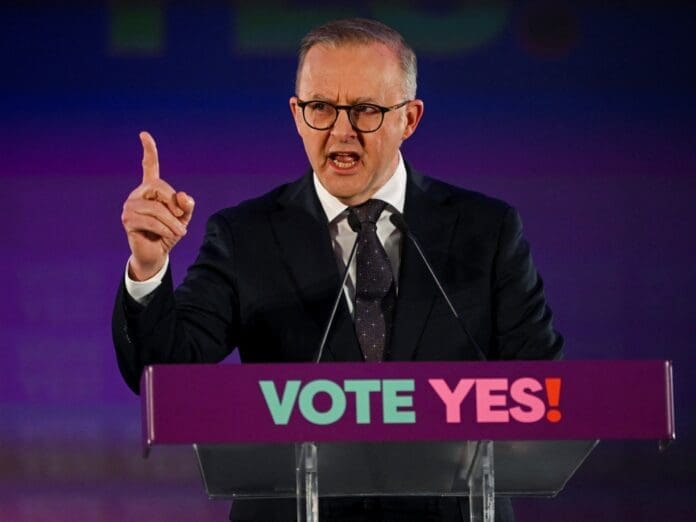Australia Rejects Constitutional Reform to Recognise Indigenous People
In a disappointing outcome, Australia has rejected a proposed constitutional reform to officially recognise and acknowledge Indigenous people. The referendum results revealed that the “Yes” votes did not meet the necessary threshold to establish an Indigenous advisory body called the “Indigenous Voice to Parliament”.
With a majority of the votes counted, it became obvious that opponents of the reforms outnumbered supporters, with a 60 percent to 40 percent ratio. Furthermore, all but one of the required six states voted against the proposal. Victoria had the highest percentage of yes votes at 46 percent, while Queensland had the lowest at 32 percent.
Despite the setback, Prime Minister Anthony Albanese defended his decision to push for the referendum, stating that “We must seek a new way forward with the same optimism.” He emphasized that the outcome did not signify the end of their efforts to unite people.
Indigenous citizens in Australia represent approximately 3.8 percent of the country’s population of 26 million and have inhabited the land for over 65,000 years. However, they are not explicitly mentioned in the constitution and continue to face disadvantages in various areas, including healthcare and housing.
Proponents of the proposed changes to the 122-year-old constitution believe that incorporating an Indigenous voice into the document would help foster national reconciliation. On the other hand, opponents argue that it would be divisive and ineffective.
This referendum outcome highlights the challenges in successfully passing such reforms in Australia, as only eight out of the 44 referendums held since its founding in 1901 have been successful. This is the first referendum since voters rejected a proposal to become a republic almost 25 years ago.
The vote also raises concerns about the role of misinformation in influencing public opinion. Prior to the referendum, a significant campaign spread through social media, creating fears that the Indigenous Voice to Parliament, which would function solely as an advisory body, would become a third chamber of parliament and lead to increased federal funding for Aboriginal people.
Prime Minister Albanese criticized certain sections of the media for steering the referendum debate away from the core issues. He noted that unrelated topics were discussed, diverting attention from the true purpose of the referendum.
While the rejection of the constitutional reform is disappointing, it is important to continue working towards greater recognition and equality for Indigenous people in Australia.
